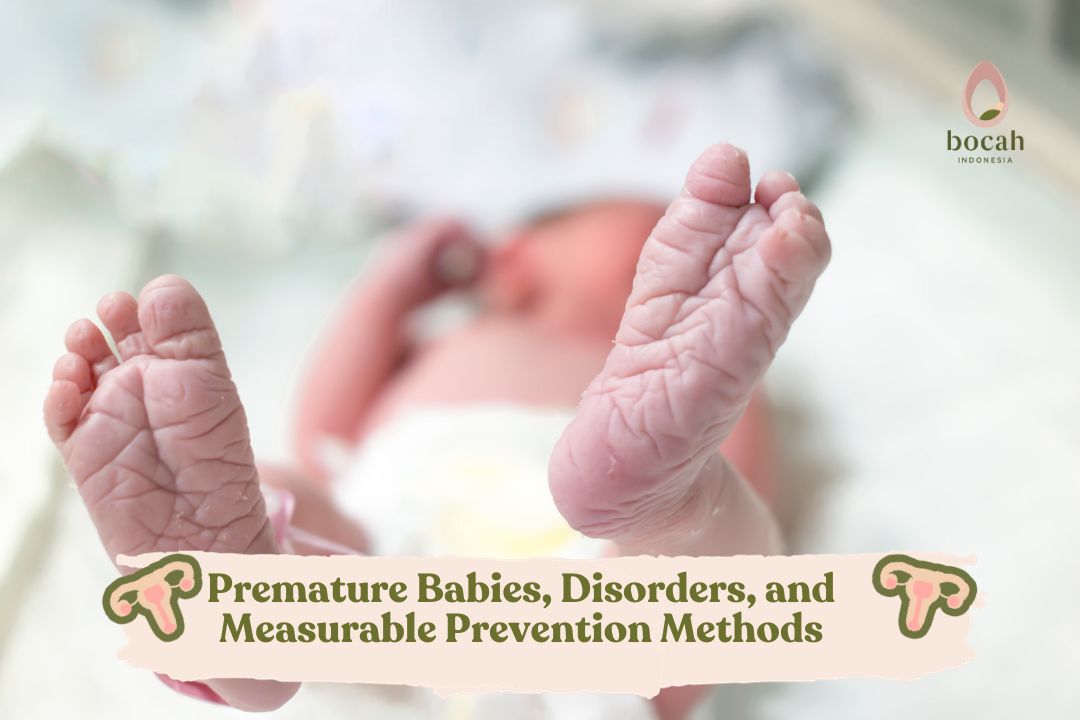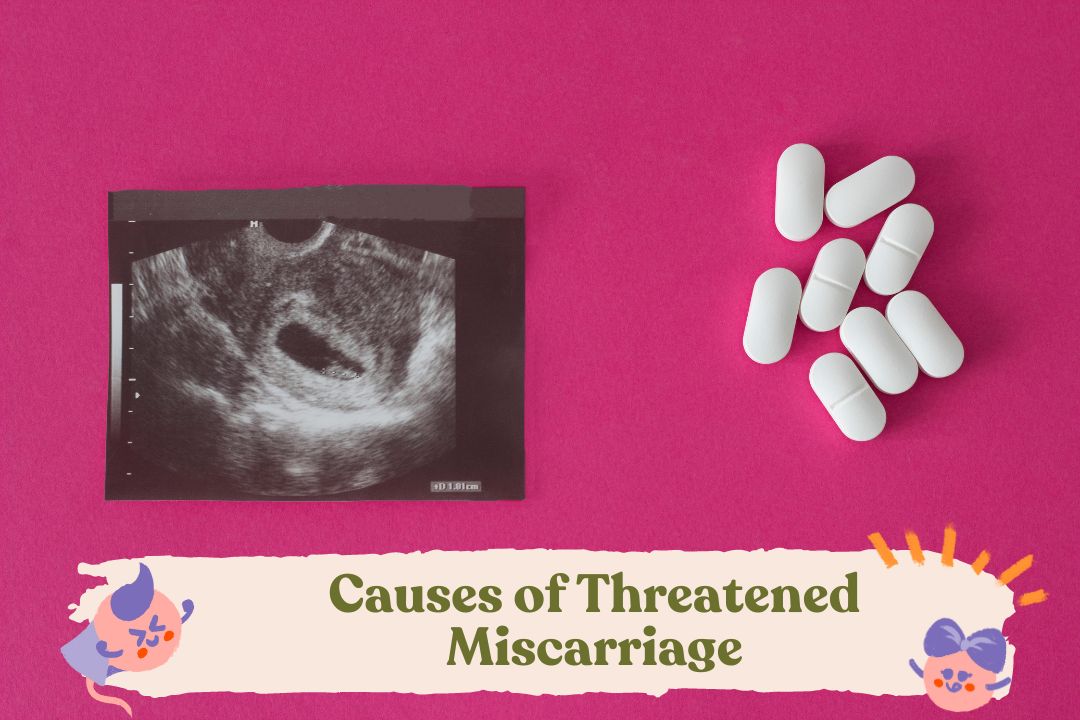Premature Babies, Disorders, and Measurable Prevention Methods

Premature babies are infants born before their due date, which is before 37 completed weeks of pregnancy or more than 3 weeks before the expected due date. A normal pregnancy typically lasts for 40 weeks, counted from the first day of the last menstrual period. Premature babies, also known as preterm babies, are usually not fully developed at birth. There is a possibility that they may have health problems and need longer hospitalization than full-term babies. However, thanks to advances in medical care, extremely premature babies now have a much better chance of survival compared to the past.
Classification of Premature Babies
The classification of premature birth is determined by the number of weeks of pregnancy completed:
- Extremely preterm, born before 28 weeks of pregnancy.
- Very preterm, born between 28-32 weeks of pregnancy.
- Moderately preterm, born between 32-34 weeks of pregnancy.
- Late preterm, born between 34 and 37 weeks of pregnancy.
Premature babies can experience various different problems after birth. This is because each baby is unique and different. However, in general, the earlier a baby is born, the lower their birth weight, which increases the likelihood of health issues due to prematurity. Premature babies, especially those born extremely premature, often need to be cared for in a neonatal intensive care unit (NICU) at the hospital. Premature babies remain in the NICU until their organs have matured enough to sustain life without medical support. Some premature babies may require NICU care for weeks to months until they can breathe on their own, feed orally, maintain body temperature, and stabilize their weight.
Causes of Premature Birth
The exact cause of premature birth is not always known. However, several factors can increase the risk of a baby being born prematurely, including:
- Bleeding.
- Abnormalities in the uterus, cervix, or placenta.
- Carrying twins, triplets, or more.
- Infections in the uterus or other parts of the body.
- A history of previous premature births.
- Pregnancy complications such as diabetes, high blood pressure, or maternal heart and kidney disorders.
- Smoking, alcohol consumption, or drug use by the mother.
- Chronic stress during pregnancy.
- Maternal overweight or underweight. With current medical technology, the survival rate of babies born at 25 weeks of pregnancy ranges from 70-90 percent. While this is good news, it is important for pregnant mothers to be cautious during pregnancy and be aware of and recognize risk factors that increase the likelihood of premature delivery.
Short-Term Health Issues in Premature Babies
The health problems experienced by premature babies can occur immediately after birth or later on. Therefore, experts divide them into: Short-term premature baby problems In the short term, immediately after birth, premature babies may experience issues such as:
Tanya Mincah tentang Promil?
- Anemia: This is a condition in which the baby does not have enough healthy red blood cells to carry oxygen to the body. Anemia leads to low oxygen and blood sugar levels in the baby, affecting organ function. Premature babies in the NICU often experience anemia because they undergo routine blood tests to evaluate their health. Often, these babies cannot produce new blood cells quickly enough to replace the ones lost during blood tests.
- Difficulty maintaining body temperature: Premature babies lack sufficient body fat to regulate their body temperature. Some methods to help keep them warm include placing them in incubators, using special hats and blankets, or practicing kangaroo mother care (skin-to-skin contact with the mother).
- Respiratory disorders: Premature babies often struggle to breathe on their own after birth because their lungs are not fully developed. These respiratory disorders include:
- Apnea of prematurity (AOP): A term for pauses in breathing lasting 15-20 seconds or longer, often accompanied by slow heart rate (bradycardia).
- Bronchopulmonary dysplasia (BPD): A lung disease in babies treated with respiratory support machines. Babies with BPD are at increased risk of lung infections and damage.
- Respiratory distress syndrome (RDS): Premature babies with RDS do not produce enough surfactant, a slippery substance that prevents the air sacs in their lungs from collapsing.
- Heart disorders: Some premature babies may develop patent ductus arteriosus (PDA), a condition where a blood vessel that should close at birth remains open. This vessel helps blood flow to the baby’s lungs before birth. Once the baby is born and their lungs fill with air, this vessel is no longer needed and typically closes on its own within a few days. If it does not close properly, it can lead to heart and respiratory problems.
- Infection or sepsis: Premature babies are more susceptible to infections because their immune systems are not fully developed. Severe infections can lead to sepsis, which can be fatal.
- Gastrointestinal disorders: Some premature babies have intestinal problems that cause diarrhea, vomiting, and sometimes bloody stools. This condition typically occurs within a few weeks after birth and can be serious.
- Intraventricular hemorrhage (IVH): Within days after birth, premature babies may experience bleeding in the brain. This bleeding can be mild and resolve on its own or become severe. In very premature babies, brain scans may be needed to confirm this condition.
- Jaundice: Jaundice in babies occurs when the baby’s liver is not fully developed or functioning properly. It is caused by the buildup of bilirubin in the baby’s blood, making their skin and whites of the eyes appear yellow.
Long-Term Health Issues in Premature Babies
Some premature babies may experience health problems later in life. The same principle applies: the earlier the baby is born, the higher the likelihood of long-term health issues, including:
- Intellectual development disorders: These are problems related to brain function, including:
- Cerebral palsy (CP): A group of conditions that affect the parts of the brain that control muscles, leading to movement, posture, and balance issues.
- Behavioral disorders: Some studies suggest that premature babies are more likely to have attention deficit hyperactivity disorder (ADHD) than full-term babies, which can make it difficult for children to focus and control their behavior.
- Mental disorders: There are studies suggesting that premature babies are at a higher risk of developing anxiety or depression later in life. However, many other factors can contribute to the occurrence of these disorders.
- Lung and respiratory disorders: Over time, lung function usually improves, but some premature babies may experience symptoms such as asthma or permanent lung tissue damage.
- Vision disorders (retinopathy of prematurity/ROP): This condition occurs when the baby’s retinas do not fully develop in the weeks following birth. The retina is the nerve tissue located at the back of the eye. ROP typically affects both eyes and can lead to permanent blindness.
- Other health issues: Some problems that can occur in premature babies later in life include:
- Dental problems: Premature babies may experience delayed tooth growth, changes in tooth color, or misalignment of teeth as they grow older.
- Hearing disorders: Premature babies are more likely to have hearing problems compared to full-term babies.
- Infections: Essentially, premature babies remain more susceptible to infections as they grow older.
- Growth disorders: Very premature babies tend to have shorter stature and lower body weight than average, a condition known as stunting.
Treatment for Premature Babies
Premature babies have many special needs and are more vulnerable to health problems. Therefore, premature babies require care in the NICU until their condition stabilizes. These babies are placed in incubators with warmers. Treatment in the NICU typically takes some time. When the baby meets the following criteria, they can be discharged:
- Weighs at least 1,800 grams.
- Can maintain a stable body temperature without the assistance of an incubator.
- Can breastfeed directly or use a bottle.
- Shows stable weight gain.
- Can breathe independently without respiratory support.
Preventing Premature Birth
To prevent premature birth, pregnant mothers can take the following measures:
- Consume a healthy and balanced diet.
- Get adequate rest.
- Avoid alcohol, smoking, and drugs.
- Manage stress effectively.
- Recognize modifiable risk factors through lifestyle changes. Pregnant mothers should also be aware of the signs of premature labor so that appropriate care can be initiated promptly. These signs include:
- Contractions that do not decrease with rest or drinking water.
- Vaginal bleeding.
- Abdominal cramps, similar to menstrual cramps.
- Changes or increased vaginal discharge.
- A sensation of pressure in the pelvis or the feeling that the baby is pushing down.
- Back pain.
Conclusion
Premature babies can experience various health problems compared to full-term babies. Premature birth can also lead to long-term issues such as intellectual and developmental disorders. Therefore, pregnant mothers need to recognize the risks early in pregnancy. Discuss these with your doctor and take steps to prevent them, including regular prenatal check-ups and following all recommended guidelines for a healthy pregnancy.
Source:
- March of Dimes. [Last reviewed October 2019]. Premature babies. URL: https://www.marchofdimes.org/find-support/topics/birth/premature-babies.
- March of Dimes. [Last reviewed October 2019]. Long-term health effects of premature birth. URL: https://www.marchofdimes.org/find-support/topics/birth/long-term-health-effects-premature-birth.
- Mayo Clinic. [Last updated June 5, 2023]. Beware of risks, signs of premature birth. URL: https://www.mayoclinichealthsystem.org/hometown-health/speaking-of-health/be-aware-of-risk-factors-signs-of-premature-birth.
- MSD Manual. [Last reviewed October 2022]. Preterm infants. URL: https://www.msdmanuals.com/professional/pediatrics/perinatal-problems/preterm-infants.










